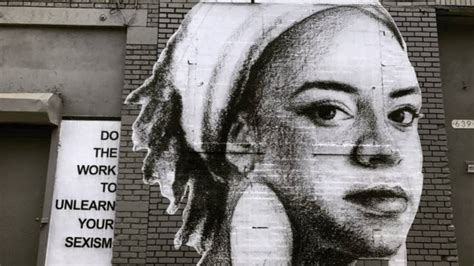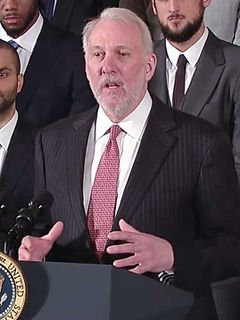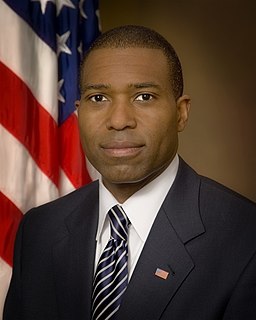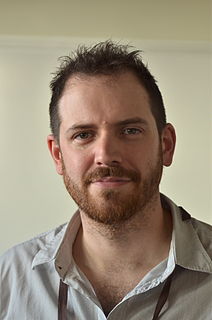A Quote by J. B. Pritzker
I've tried, in my own life, to speak up when I see harassment occurring. But I want to acknowledge that there are probably situations and instances where I could have done more. I think that's an acknowledgment that all men need to make.
Quote Topics
Related Quotes
Men who are offenders of street harassment and women who experience street harassment can walk by and feel something about it, because it's out there in the environment where the harassment actually happens. So it's a lot more powerful than an oil painting that's stuck in a gallery or under my bed or in my studio where only a couple of eyes are going to see it, as opposed to it being in an environment where it could possibly effect a change.
I've wondered, though, if one of the reasons we fail to acknowledge the brilliance of life is because we don't want the responsibility inherent in the acknowledgment. We don't want to be characters in a story because characters have to move and breathe and face conflict with courage. And if life isn't remarkable, then we don't have to do any of that; we can be unwilling victims instead of grateful participants.
I created a paradigm by which I could succeed, and up until recently it was the only way I could do it. I could not take the brunt of standing in the light of my own work. There was a Faustian bargain I could not make. I could have you mock me for wearing funny clothes that I could deal with. But I couldn't deal with actually standing in the light of my own musical power. That's the difference now. It's like, okay, no more of that, you're done.
It’s not just other people we need to forgive. We also need to forgive ourselves. For all the things we didn’t do. All the things we should have done. You can’t get stuck on the regrets of what should have happened. I always wished I had done more with my work; I wished I had written more books. I used to beat myself up over it. Now I see that never did any good. Make peace. You need to make peace with yourself and everyone around you.
Unfortunately, I think it's very difficult to separate policy from politics. In a perfect world, in some instances, you probably would want to. In other instances, you'd probably say that the political element is important because it should, in a perfect world, match what the stakeholders need or want, or what the public is after.
Unfortunately, I think it's very difficult to separate policy from politics. In a perfect world, in some instances you probably would want to. In other instances you'd probably say that the political element is important because it should, in a perfect world, match what the stakeholders need or want, or what the public is after.

































